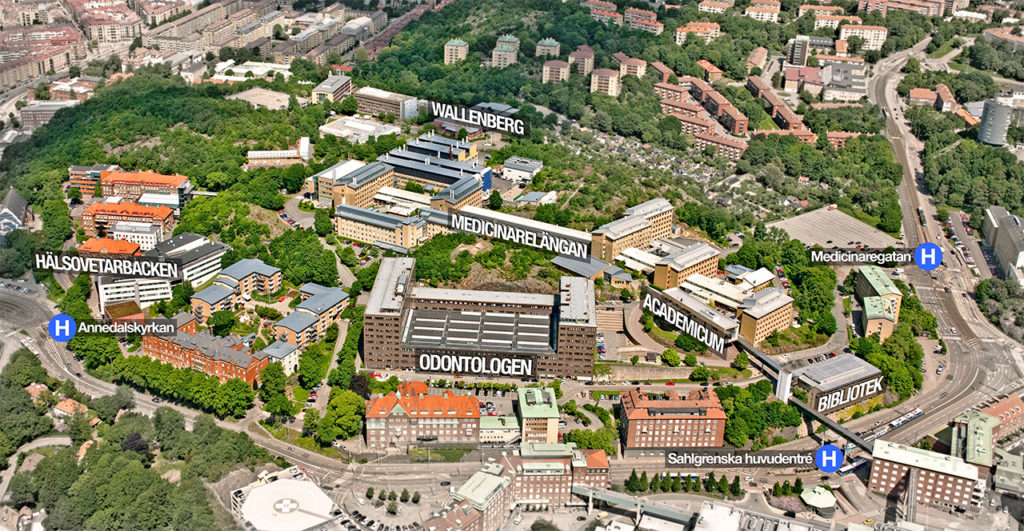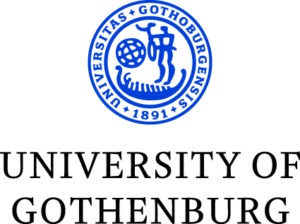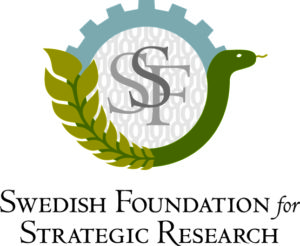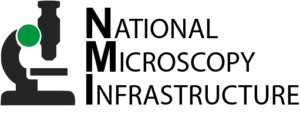Contents
- 1 2nd Training School for Early Career Researchers (TS4), Gothenburg 2017
- 1.1 Topics:
- 1.2 More info & testimonials about previous edition here…
- 1.3 Requirements
- 1.4 Trainers
- 1.5 Programme (final)
- 1.6 Venue & contacts
- 1.7 Travel & Hotel info:
- 1.8 Local Organization (& Contacts)
- 1.9 Travel Grants
- 1.10 Selection Criteria (for all, including granted Trainees):
- 1.11 Ready to apply (click to access application form)?
- 1.12 Sponsors:
2nd Training School for Early Career Researchers (TS4), 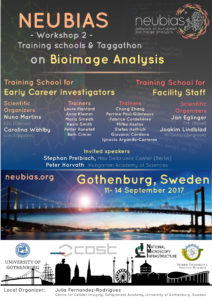 Gothenburg 2017
Gothenburg 2017
- Gothenburg- September 11-14th (Mon-Thu), 2017
- Number of available seats for trainees: 25
- Number of available trainers to assist them ~10
Topics:
- Principles, techniques and ethics of digital image processing (DIP);
publication of bioimages. - Building practical workflows to analyse 2D, 3D & time-lapse bioimages
(eg. object segmentation and densitometry, spot detection & tracking or filament tracing) - Introduction to workflow automation: record & reuse commands, scripting of workflows/pipelines
NOTE – if you work on an imaging facility and are already familiar with the basics of DIP & analysis check the school for “Staff” in the same dates & venue, which is focused on scripting of workflows. - Extracting and validating quantitative numerical data from bioimages
- Solve your own problem, code your workflow and explore different tools with help from Analysts
More info & testimonials about previous edition here…
Requirements
- Applicants should have own data to bring to the school which they have started already analyzing, and be able to explain what they need to learn about image analysis to advance their research (explained in application form) – some basic-level experience with a tool like ImageJ is advisable, but not required.
- Must fill valid application form before June 2nd – follow link at end of this page
- Should be able to bring own laptop: >=4Gb RAM, 10Gb HD space, ethernet port and 1Gb GPU (please make sure to select correct option in form!) – we are working on a solution for trainees who absolutely cannot bring their own laptops!
- Must include brief letter of motivation (text pasted into registration form), mentioning level of proficiency and interests, and propose a mini-project with goals for the school (e.g., a specific image analysis tool or workflow they are interested in getting help from our expert trainers)
- Must be able to attend all days/times of the course (no exceptions!)
- Must be able to bank-transfer administrative charges (credit card or paypal not possible).
- Must comply to administrative conditions and confirm travel&hotel by 26 of July – read conditions at end of application form!
Trainers
- Anna Klemm – Staff Scientist @Core Facility Bioimaging, BMC, Ludwig-Maximilians-Univ Munich, Germany
- Beth Cimini – Lead Assay Developer @Broad Institute of MIT and Harvard, US
- Carolina Wählby – PI & Image Analyst @Uppsala Univ, Sweden
- Fabrice Cordelières – Image Analyst & Microscopy Specialist @CNRS/Bordeaux Imaging Center, France
- Gaby G Martins – Imaging specialist @IGC advanced Imaging, Portugal
- Kevin Smith – Image Analyst @KTH Royal Institute of Technology in Stockholm, Sweden
- Kota Miura – Image Analyst @University of Heidelberg, Germany & NIBB, Okazaki Japan
- Laure Plantard – Imaging specialist @CFIM – Dept Medical Sciences, Univ Copenhagen, Denmark
- Nuno P Martins – Microscopy Specialist and Image Analyst – @IGC, Lisbon, Portugal
- Peter Horvath – PI & Developer @Biological Research Centre of the Hungarian Academy of Sciences
- Petter Ranefall – Image Analyst @Uppsala Univ, Sweden
- Stephan Preibisch – PI &Developer @Berlin Institute for Medical Systems Biology (BIMSB), Germany
Programme (final)
(Morning coffee breaks @10:30, lunch at @12:30, afternoon breaks @16:00 and dinners at ~19:30)
Day 1 “Using IJ for Scientific Illustration”
- 8:00!!! Welcome session @Wallenberg Center
(TS4 school will then take place at Europa lecture-hall~, starting at 9:00 every morning) - 9:00 Introduction to ImageJ: basic operations
- Checking and preserving the quantitative intensity content of your images
- Working with color images and images in color
- From pixels to microns: ROIs & simple measurements, 2D time-series.
- Assembling data for publication using FigureJ
- Ethics in DIP
- Welcome reception
Day 2 “Using IJ for Image Analysis, building workflows”
- 9:00 Working with pixels: filters, morphomaths and binary operations
- Working with stacks: 3D image visualisation
- Seminar: “Lightsheet Image Reconstruction and the Application to Whole Organism Transcription Imaging”
- Working with objects: measurements in 2D and 3D
- Recording simple macros for batch processing; from workflows to macros
- Dinner buffet
Day 3 “Building Image Processing Pipelines with CellProfiler”
- 9:00 Building a pipeline with CellProfiler: basics
- object detection and feature measurements
- Machine learning using CellProfiler Analyst
- New functionalities in CellProfiler 3.0: analysis of 3D data
- 20:00 Gala dinner (outside venue!)
Day 4 “Choose your toolbox, Work on your data and Present your results”
- 9:30 Work on own project
- Present and discuss results
- 18:00 School ends!
What is, and what is not included for trainees?
- Upon selection of 25 trainees, all participants are provided with catering (coffee break, lunch and dinner, excluding breakfast) and all course materials in electronic format (including lectures & exercises).
- Travel & accommodation are not included for trainees (see below how to travel to venue and hotels nearby).
- There is only a limited number of workstations, for trainees who CANNOT bring their own laptops. We will provide assistance with installation and configuration of the necessary software.
Venue & contacts
The 2017 NEUBIAS Workshop 2 will be hosted by the Centre for Cellular Imaging, Sahlgrenska Academy, at the University of Gothenburg, Sweden, on September 11-14.
The Sahlgrenska Academy is the faculty of health sciences at the University of Gothenburg. Education and research are conducted within the fields of pharmacy, medicine, odontology and health care sciences. The Wallenberg Conference Centre is a modern meeting center located next to the Sahlgrenska Academy at Medicinaregatan 20. The Sahlgrenska area is reached by car, bus or tram (the closest stop is ‘Medicinaregatan‘)
Travel & Hotel info:
Getting to Gothenburg
By air: Göteborg Landvetter Airport is an international airport serving the Gothenburg region in Sweden. It is located 20 km south-east of the city centre and you can travel directly from various destinations in Europe and the world. For general information, please click here.
- Airport transfer
It’s easy to get to and from the airport with the shuttle bus service Flygbussarna and the journey time is between 25 and 30 minutes. Buses leave from right outside the terminal building and the final stop is the main bus station Nils Ericssonterminalen in central Gothenburg. Taxi or rental cars are also available at the airport.
By train: SJ, Tågab and NSB are running frequent services to and from the Central Station in Gothenburg, connecting the city with the Scandinavian capitals Stockholm, Oslo and Copenhagen. The journey times are just under 4 hours from Oslo, around 3 hours from Stockholm and 3,5 hours from Copenhagen. The trains from Denmark stop at Copenhagen international airport, making it a convenient option to fly there and catch the train to Gothenburg.
By bus: The bus terminal Nils Ericsson terminalen is serviced by long distance and express bus companies like Swebus and Nettbus. You can easily travel to Gothenburg from the major cities in Sweden and Scandinavia.
By car: The main Training venue is at the Conference Centre Wallenberg, Medicinaregatan 20A in Gothenburg. The largest parking area is located between the tram stop ‘Medicinaregatan’ and the conference center (6 SEK/h). A smaller parking lot is available on the right side of the conference centre, next to the small cottages (15 SEK/h). There is also a parking garage at Medicinaregatan 16. Parking directly in front of the Wallenberg center is not allowed for visitors.
Getting around in Gothenburg
Local buses and trams are run by Västtrafik.
Venue: The main Training venue is at the Conference Centre Wallenberg, Medicinaregatan 20A. The closest tram stop is called Medicinaregatan. The Gothenburg city public transportation system can be found here.
- From the Göteborg Landvetter airport to the Venue
Take the airport bus, Flygbussarna, in front of the arrivals terminal. The bus runs every 15-20 minutes, and it is only 20 minutes ride to the city centre. You can find the time tables and how to buy tickets here.
Get off at Korsvägen stop and take tram number 6 with direction ‘Länsmansgården via Sahlgrenska’, tram number 8 with direction ‘Frölunda’ or tram 13 with direction ‘Sahlgrenska’. Get off at Medicinaregatan stop.
- From Nils Ericsson terminal (bus terminal) to the Venue: Take a tram number 6, 7 or 13 from the bus terminal, Nils Ericsson terminal, to Medicinaregatan stop.
- From city centre to the Venue: Tram number 7 and 8 also stop there if coming from other directions.
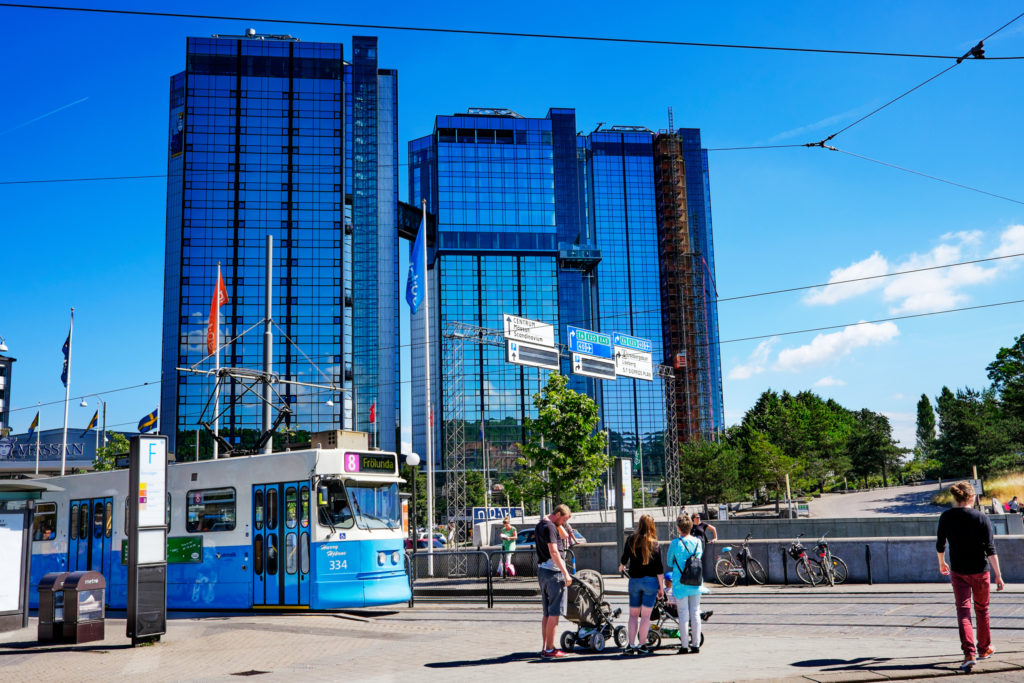 (Foto: Gothia towers at Korsvägen. Photographer Simon Paulin/imagebank.sweden.se)
(Foto: Gothia towers at Korsvägen. Photographer Simon Paulin/imagebank.sweden.se)
Staying in Gothenburg
Hostels: A hostel is a good alternative if you are traveling on a tight budget. These two hostels are located close to the meeting venue: Slottsskogen Hostel and Linnéhostel
Hotels: The University of Gothenburg has agreements with these following hotels and as a participant in the Training Schools and Taggathon you can get a discounted price. See each hotel below for the terms. However, it is advisable to make a reservation as soon as possible since rooms fill up fast. Other hotels can be found at e.g. the go:teborg webpage.
Quality hotel Panorama (3 stars) Single room 882 SEK/night (~92€, VAT included). To get access to the group discount send email to Reservation.q.panorama@choice.se with your personal info, dates of arrival+leave, and mention booking code 2028GR007045.
Hotel Lorensberg (3 stars) Single room 897 SEK/night (~93€, VAT included). State the booking code JM225 to get the discounted prices.
Hotel Vasa (3 stars). Single room 795 SEK/night (~83€) and double room (one 140 cm wide bed) 910 SEK/night (~96€). State “Neubias” to get the discounted price.
Inform them that you attend Training School or Taggathon arranged by the University of Gothenburg and that you are entitled to our discounted prices.
Local Organization (& Contacts)
The Sahlgrenska Academy is home of the Centre for Cellular Imaging (CCI), lead by NEUBIAS Workshop 2 local organizer Julia Fernandez-Rodriguez. The CCI, in operation since 2003, is one of a number of advanced technology platforms at the University of Gothenburg. This multimodal advanced microscopy facility provides technical and scientific excellence by the integration of multiple imaging technologies in a single core. Our vision is that the CCI will allow users to think broadly and select the best possible instrument(s), light and/or electron microscope(s), to provide detailed answers to their scientific questions at the highest resolution. We are committed to developing a functional systems microscopy approach, which can address new scientific questions with a multi-modal imaging strategy using only a few or many samples. Using modern cell biological tools, expertise in live cell imaging and state-of-the-art equipment and image analysis we will continue to help researchers relate structure to function and morphology to mechanism.
Local Organizers
- Julia Fernandez-Rodriguez (e-mail), Maria Smedh (e-mail), Hendrik Deschout (e-mail), Carolina Tägemo
- Ai-Linh Nguyen (email), Carina Johansson (admin)
ECI Training School programme:
- Carolina Wahlby (Uppsala University – Sweden)
- Nuno Martins (Instituto Gulbenkian de Ciência – Portugal)
The local organizers wish you a wonderful stay in Gothenburg!
![]()
(Foto: Klippan Gothenbrurg. Photographer: Per Pixel Petersson/imagebank.sweden.se)
Travel Grants
NEUBIAS will offer competitive Travel Grants to a number of the Trainees applicants affiliated to institutions in COST member countries or Near-Neighbour Countries or approved European RTD Organisations (check definitions in COST Vademecum here). Please check in the application form how to apply for those grants by filling the additional fields enabling to submit a justification. The grants are supported by COST (funding body of the NEUBIAS Action). Eligibility and reimbursement modalities will follow the criteria/general COST policies (check the Vademecum here). Granted trainees will be notified before June 30th, and grants will be executed after the Training School (daily signature on attendance sheets compulsory for grant winners). The grants are attributed at a fixed rate of 750€ to cover for travel and accommodation.
Selection Criteria (for all, including granted Trainees):
Trainees will be selected strictly on the basis of their scientific motivations, as described in their motivation letter. Upon selection, NEUBIAS will seek proof of the candidates status as “early career investigator” and of being actively working on the project(s) as described in the motivation letter. Gender balance and geographical distribution will be taken into consideration according to COST policies, and only after pre-selection of eligible/suitable candidates and in the case that applicants are too numerous as compared to the number of available seats. Evaluations of the applications is operated by “double anonymous” (no mention to name, institution, country) review by the Training Schools Evaluation Committee of NEUBIAS.

